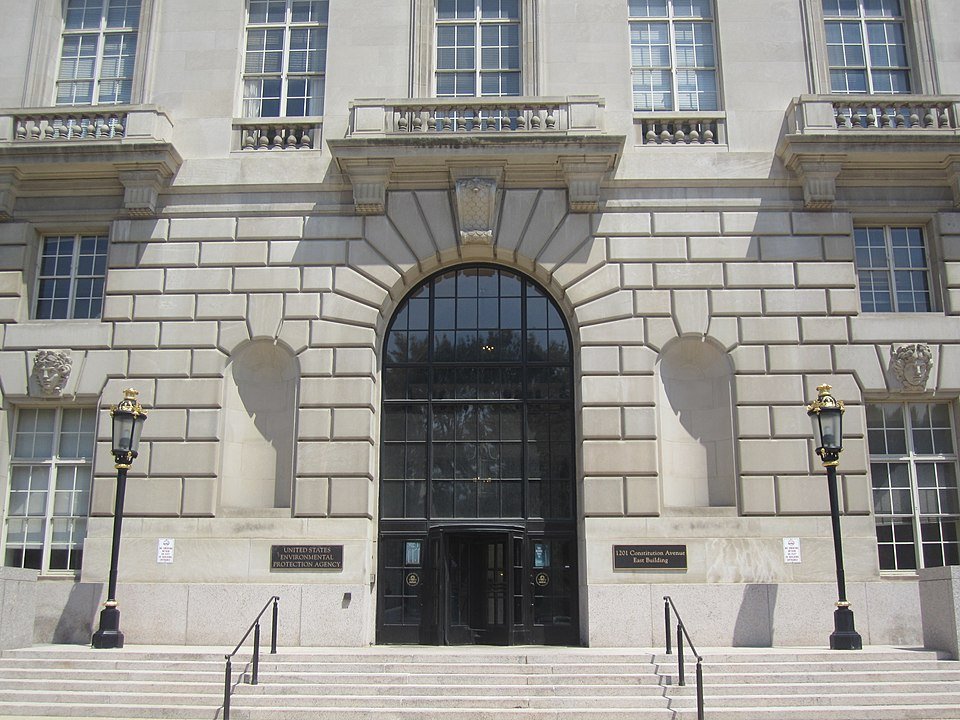Tell the EPA: Greenhouse Gasses are Hazardous to Our Health
by Jenni Silverstein
On June 15th 2022, a little publicized but potentially profound event took place on the steps of the Environmental Protection Agency (EPA). Five luminaries in the field of climate science handed a petition to an emissary of Director Michael Regan, arguing that carbon dioxide and other greenhouse gasses can and must be regulated under existing law. Among them was Climate Psychology Alliance–North America steering committee member, Dr. Lise Van Susteren.
“If the EPA determines that carbon, methane and other greenhouse gasses are indeed toxic substances, they could enact regulations under the TSCA without congress passing any new legislation. ”
The EPA has 90 days to respond to The Petition to Phase Out GHG Pollution to Restore a Stable & Healthy Climate, a 75-page legal and scientific document detailing the federal government’s obligation to regulate greenhouse gas emissions under the Toxic Substances Control Act (TSCA). The petition was the inspiration of former EPA scientist Donn J. Viviani. It was written by Viviani, climate scientist James E. Hansen, atmospheric chemist John Birks, climate accountability analyst Richard Heede and Lise – whose specific role was to delineate the impacts of greenhouse gas emissions on mental health, particularly on neurodegenerative diseases. As mental health providers, we all can support her efforts by endorsing the petition before the response deadline of September 15th.
The TSCA has been law since 1976 and was amended with bipartisan approval in 2016. The TSCA allows for the regulation of any commercial products shown to be unreasonably harmful to health or the environment. It permits the EPA to regulate all aspects of chemical risk including manufacture, processing, distribution, use, and disposal. It has provided the legal underpinnings for cleaning up superfund sites, and for the regulation of commercial chemicals and byproducts such as lead, CFCs, asbestos, and PCBs.
If the EPA determines that carbon, methane and other greenhouse gasses are indeed toxic substances, they could enact regulations under the TSCA without congress passing any new legislation. The petition recommends that the EPA take the following actions:
Determine that greenhouse gas emissions in the atmosphere present an unreasonable risk of injury to health and the environment.
Start the process to enact regulations that will eventually eliminate the risk imposed by greenhouse gas pollution.
Involve broad public participation that must include the groups most affected by climate change: children and future generations, the elderly and persons with disabilities, populations at increased risk due to their socioeconomic status or homelessness, Indigenous and Native communities, and communities of color.
Enact regulations to phase out new and continuing emissions.
Enact regulations to remove and securely sequester legacy emissions.
The petition does not specify how the EPA should regulate greenhouse gasses, but potential actions that have precedent within the existing framework of TSCA include:
Enacting a carbon fee as an economic incentive to reduce the production of greenhouse gasses.
Compelling manufacturers to engage in greenhouse gas removal through best practices that may include: agricultural improvements, reforestation, enhanced rock weathering, or direct air capture.
Enabling the EPA to use any federal authorities that can efficiently address health hazards, such as calling upon federal agencies to promote green buildings, energy efficiency, etc.
Addressing global emissions by adding fees to imports with embedded carbon, and using provisions in the Superfund legislation and the Clean Air Act to enact joint cleanup of international pollution.
The recent passage of the Inflation Reduction Act (IRA) has brought surprise and relief to many climate concerned citizens. Compromised though it is, it is the biggest climate legislation ever enacted in this nation. However, the IRA is built upon incentives (carrots) to encourage the manufacture and purchase of clean energy products. It does not contain requirements (sticks) to eliminate the production of greenhouse gasses. This was a move of political expediency – it was difficult enough to pass any climate bill at all, never mind one that actually penalizes the fossil fuel industry. But it was also a move of efficiency – the executive branch alone cannot create incentives, but the EPA is already positioned to create penalties.
What remains now is for the EPA to determine that greenhouse gasses are indeed toxic substances that are unreasonably harmful to human health and the environment. This is a no-brainer, but given the political impediments to serious climate action, it is not a given. The fossil fuel industry will surely fight back, and the current SCOTUS has already shown its disdain for EPA attempts to regulate carbon.
By Billy Hathorn - Own work, CC BY 3.0, https://commons.wikimedia.org/w/index.php?curid=18289900
Lise has described the surreal experience of bringing this petition to the doors of the EPA. The contrast between the magnitude of the climate battle ahead, the consequences of failing to take sufficient action, and the handful of petitioners handing over a few pages pleading the case upon which the hope for humanity might be pressed, was hard to reconcile. She would have liked to see included in the petition an emphasis on the interwoven emotional and societal impacts of climate and biosphere destruction, but this lent itself more to a discussion than to the concise, data driven argument of the petition.
Lise was buoyed by insider reports that people in the EPA are excited at the prospect of using the TSCA to address greenhouse gas emissions. Though a small group delivered the petition to the steps of the EPA, our collective voices bring power to the call for action. We can all get behind The Petition to Phase Out GHG Pollution to Restore a Stable & Healthy Climate. Sign here, and spread the word!

